At 670,000 acres, Kenai Fjords National Park is no small playground. Its vast icefields, with ancient glaciers scouring the land and deeply carved bays teeming with wildlife offer just a glimpse into its allure. Very few places host killer whales and mountain goats within the same boundaries, yet this icy wonderland is full of stunning anomalies.
From Resurrection Bay to Exit Glacier visitors discover life at sea and life on land are vastly different and dramatically astounding. From the world’s largest mammals to the planet’s smallest, Kenai Fjords is a park of exclamation points, and one well worth exploring to the fullest.
Why Visit Kenai Fjords National Park in an RV?
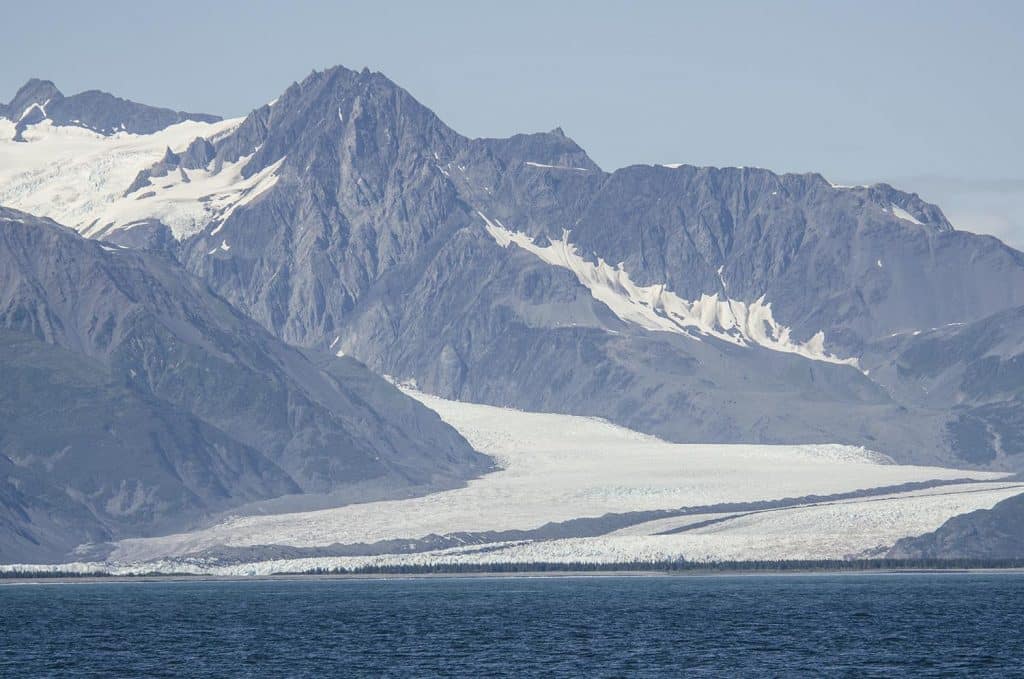
Photo Credit: Shelley Dennis
Only a very small portion of Kenai Fjords is accessible by vehicle, but the jumping-off spot for the park (Seward) is very friendly to RVs. The town has set aside hundreds of RV dry camping spots along the shoreline just for motorhomes and travel trailers.
Is there a more amazing view to wake up to than Resurrection Bay out your front window, with sea otters playing in the water just offshore? Glaciers line the mountaintops across the bay, and you can cast a line into the water from your front yard. This place is what RVing is all about!
When to Visit Kenai Fjords National Park
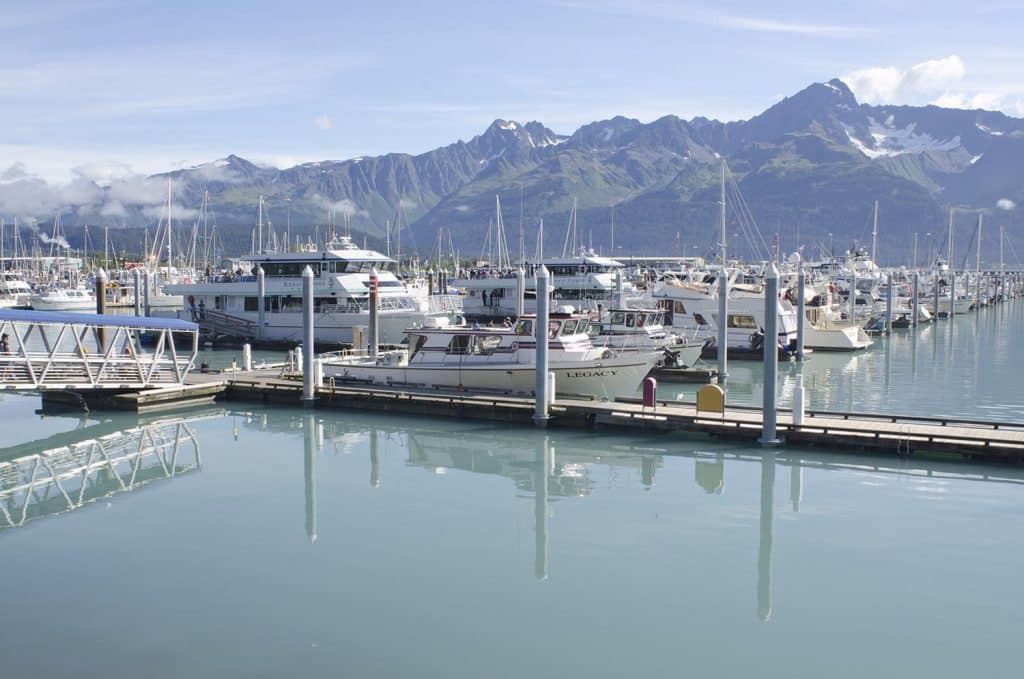
Photo Credit: Shelley Dennis
Kenai Fjords is accessible year-round but by different means of travel.
Kenai Fjords National Park in the Spring
If you enjoy winter sports like snowshoeing, cross-country skiing, and mountaineering, make this park your destination during March and April.
Kenai Fjords National Park in the Summer
June, July, and August are generally the best time of year to take advantage of the park’s main attractions.
Kenai Fjords National Park in the Fall
With beautiful colors, breathtaking glaciers, and a diverse array of wildlife, Fall is a wonderful time to visit the park.
Kenai Fjords National Park in the Winter
Sea kayaking can be enjoyed any time of year, as can fishing and flightseeing; however, Summer will offer warmer temps for those activities, as well as boat tours to view certain sea life that migrates south in the winter.
Where to Stay
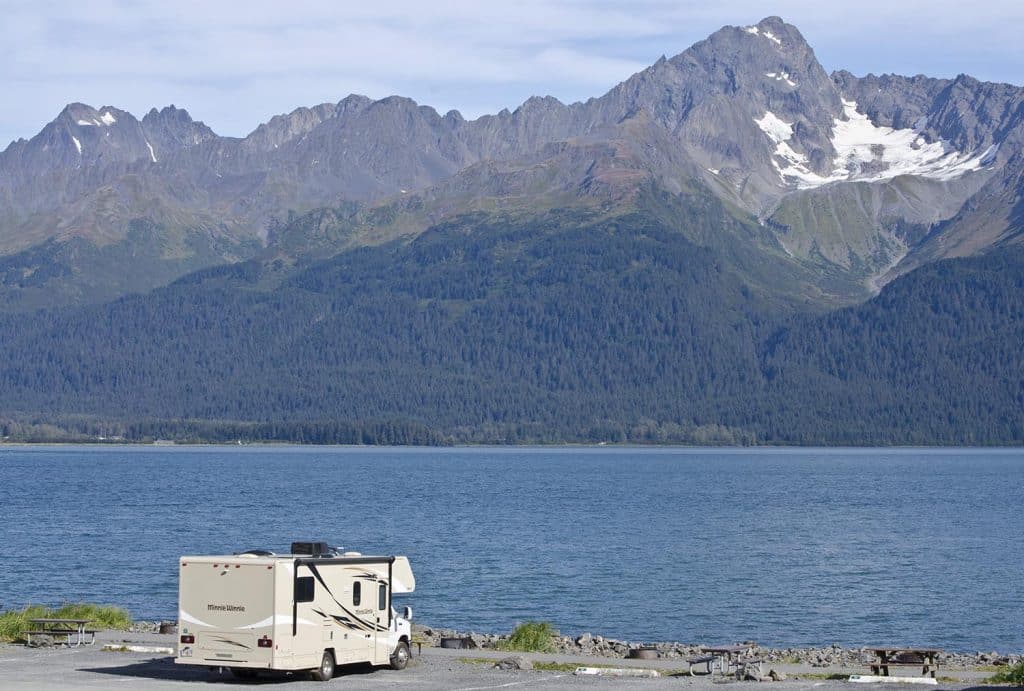
Photo Credit: Shelley Dennis
The town of Seward has dedicated several miles of shoreline for RV camping. RVers can wake up with Resurrection Bay out their front windows, walk to the small boat harbor and hop on a boat tour in 15 minutes, or walk into town for lunch or dinner in 10. The sites are dry campsites located on paved parking lots but sit right on the bay. Many even have their own picnic tables.
Staying Outside the Park
If you can’t find an available campsite, there are many RV campgrounds around Seward. Here are a few options:
- Stoney Creek RV Park: Located in Seward, AK, about 10 minutes from the national park visitor center.
- Waterfront Park: Located in Seward, AK, about two minutes from the national park visitor center.
- Kenai Princess RV Park: Located in Cooper Landing, AK, about one hour from the national park visitor center.
- Military Park Seward Resort: Located in Seward, AK, about five minutes from the national park visitor center.
Tips for your Camping Stay
If you’re looking to stay in the park, you can find a spot in the Exit Glacier Area of the park. While there are no camping or reservation fees, bookings tend to fill up by summertime; and stays are limited to 14 days.
How to Get Around Kenai Fjords National Park

Photo Credit: Shelley Dennis
Getting to Kenai Fjords by car is relatively easy. Travel to Seward, located on the Kenai Peninsula, via the Seward Highway. Small planes can fly into Seward’s airport, located just outside of town. Also, many visitors arrive by cruise ship.
Once you arrive, there is only one road in Kenai Fjords National Park. It extends about 12 miles from Seward to the Exit Glacier Nature Center. So, exploring the rest of the park is done by boat, plane, hiking, and mountaineering.
Places to Go
Here’s a look at all the places you can go while visiting this amazing national park.
Kenai Fjords Visitor Center
Located in Seward on the small boat harbor, the visitor center houses a bookstore and film about the park, and rangers are available to answer questions.
Exit Glacier
Open year-round, the Exit Glacier is at the end of the only road in Kenai Fjords National Park. With winter snows, the road is closed to cars, but visitors can snowmobile, dog sled, cross-country ski, or snowshoe up to the glacier. In summer, take a short hike from the parking lot to the glacier’s edge.
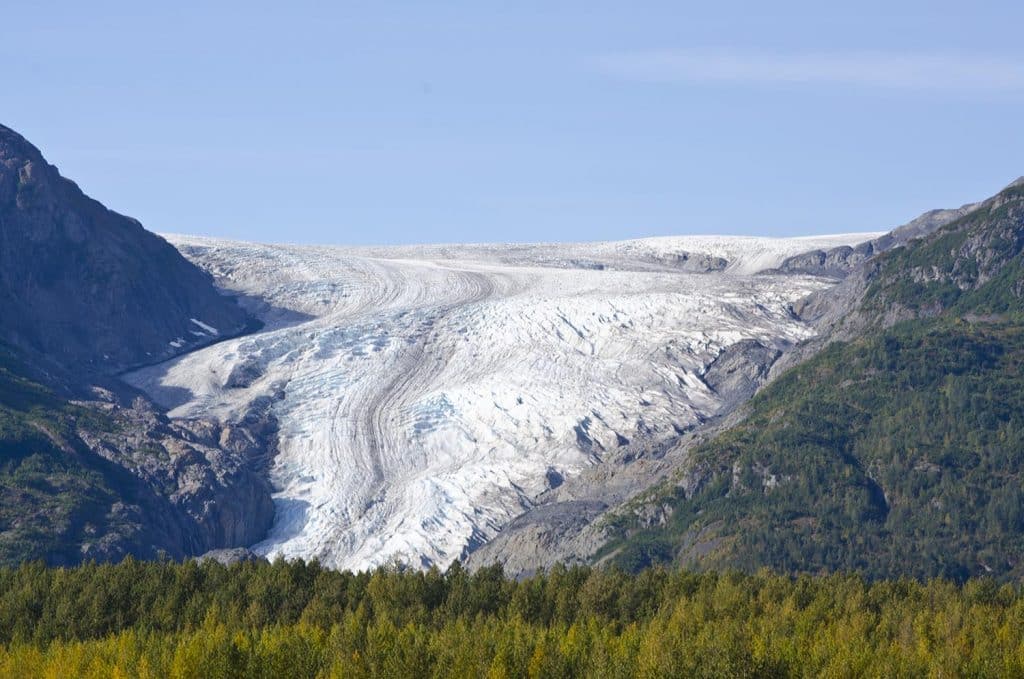
Photo Credit: Shelley Dennis
Exit Glacier Nature Center
Located at the base of Exit Glacier, the Nature Center has rangers on staff to answer questions, there are exhibits of the glacier and an Alaska Geographic Bookstore is onsite. The trailhead for the Harding Icefield Trail is located here, as well.
Things to Do in Kanai Fjords National Park
There’s plenty to do inside the park. Here are some of the best activities to do.
Boat Tours
Since a good deal of Kenai Fjords is only accessible by water, a boat tour is a great way to get your feet wet when it comes to understanding this immense park. Many tours leave from the small boat harbor in Seward and are run by private vendors. Park rangers provide geology presentations at the Kenai Fjords Tour’s lunch stop on Fox Island.
Half-day tours normally stay within the protected region of Resurrection Bay and full-day tours may take visitors out into the Bay of Alaska, where marine life and a wide variety of birds can be seen.
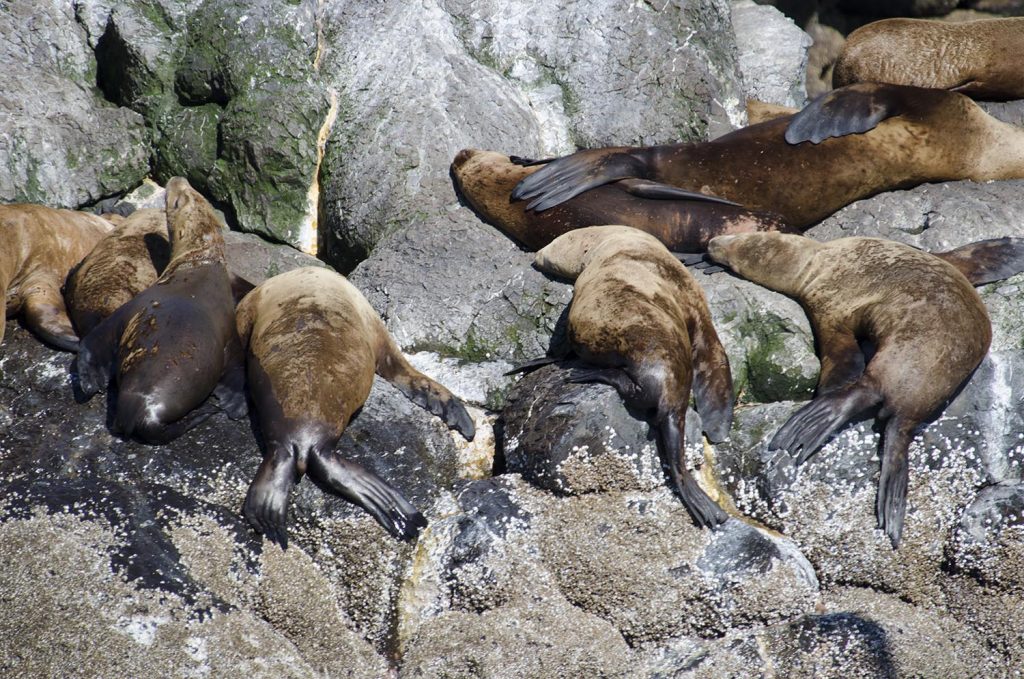
Photo Credit: Shelley Dennis
Hiking
The Harding Icefield Trail leaves from the Exit Glacier Nature Center and is a strenuous eight-mile hike from the valley floor to overlook this extensive icefield and the terminus of the Exit Glacier. In many years the last several miles of the hike are still covered in snow during the summer season, so hikers should be prepared for ice, avalanches, and intense sunlight.
Kayaking
Bear Glacier Lagoon is a stunning location for experienced sea kayakers to view this tidewater glacier as it calves icebergs into the Bay of Alaska. However, because the lagoon is 12 difficult miles from Seward, a water taxi to the area is suggested.
Once there, kayakers need to stay at least a half mile away from the edge of the glacier and be mindful of glacier lake outburst floods that can quickly raise the water level near these icefields. Fog is also a concern, along with high surf on a coast with few landings. Taking a guided tour is a good option for many.
Fishing
There are many opportunities for freshwater and saltwater fishing in Seward, along Resurrection Bay, and in backcountry lakes and streams. Salmon, halibut, Dolly Varden, and rockfish are plentiful in this area, and fishing licenses are required.
Mountaineering
The Harding Icefield is an exceptional place for experienced mountaineers. Icefield explorers should have extensive crevasse rescue training and glacier travel skills. Groups should be connected by rope when moving together, and all participants must be proficient skiers.
Snowshoeing on the glaciers is also a great way to experience the ice fields. The best time of year to explore is in April when daylight is getting longer and the temperatures are warming up.
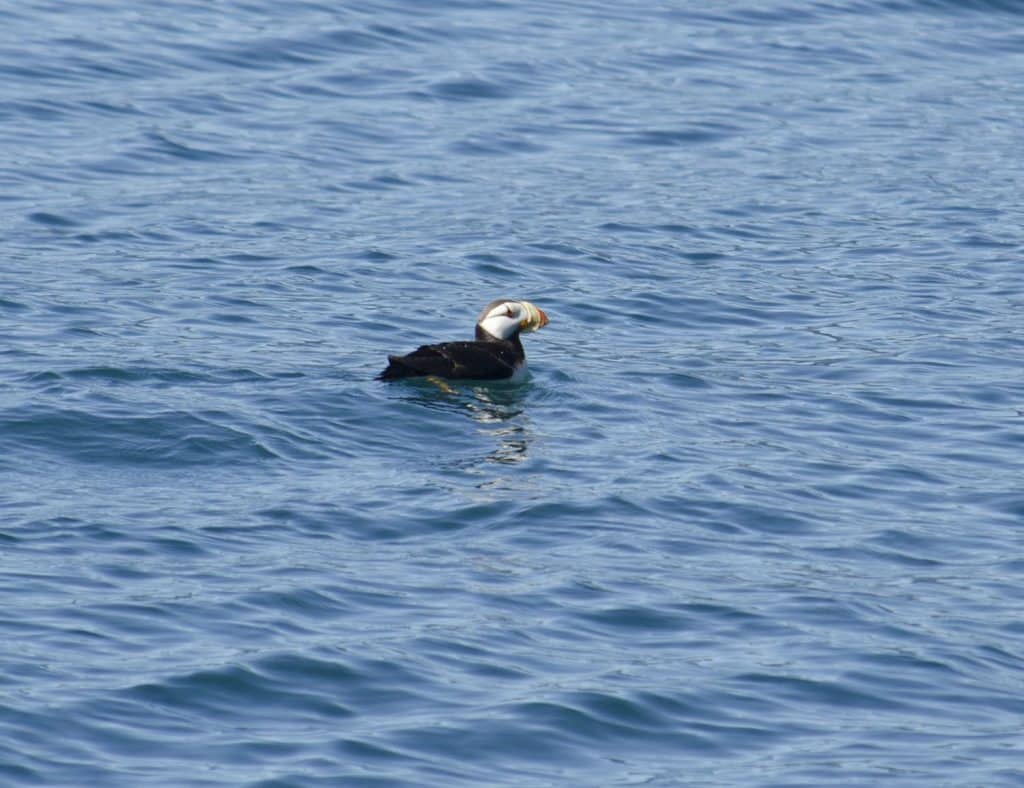
Photo Credit: Shelley Dennis
Wildlife Viewing
Land adventurers will find black and brown bears, moose, and mountain goats in great numbers throughout the region. Sealife in the area consists of birds like cormorants, puffins, and bald eagles, along with mammals ranging from stellar sea lions, sea otters, humpback and killer whales, harbor seals, and porpoises.
What to Bring and How to Prepare
As you can imagine, the park can tend to be both cold and wet, so it’s probably a good idea to stock up on:
- Warm clothes and layers (gloves, hats, socks, etc)
- A rain jacket
- Water
- Hiking boots
Extreme Adventure
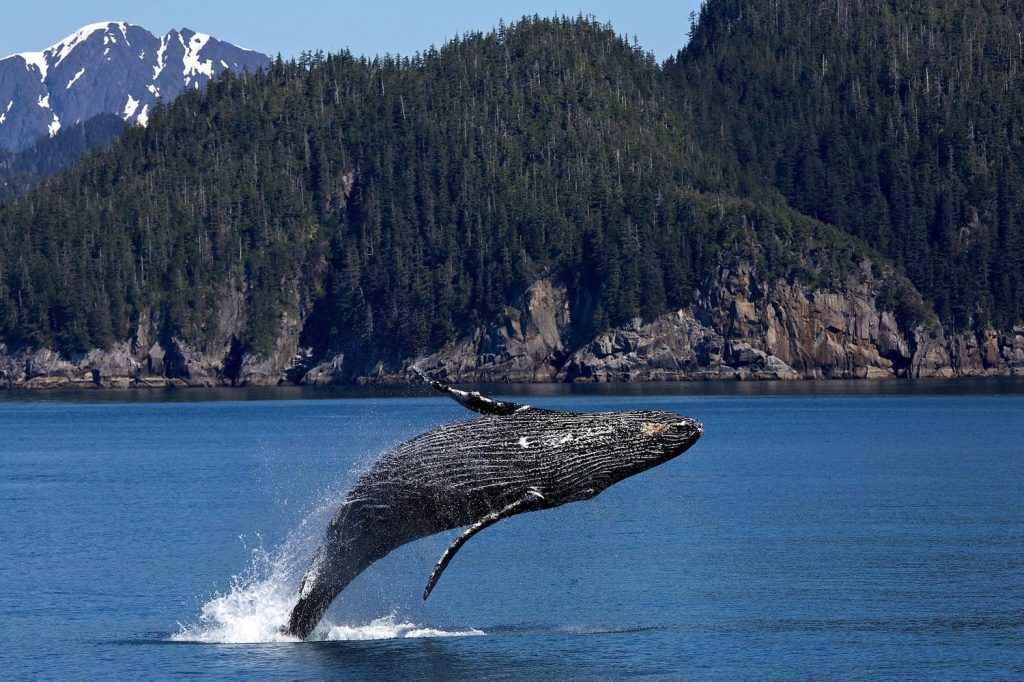
A visit to Kenai Fjords National Park will open eyes to the wonder of extremes. From peaceful fishing along the shoreline of Resurrection Bay to the heart-pumping exhilaration of a mountaineering trip across crevasse-filled glaciers, travelers here will have a difficult time returning to the mundane when they leave. Whale breaching, glacier calving, and sea kayaking are hard to compete with back home!
Brief History of Kenai Fjords National Park
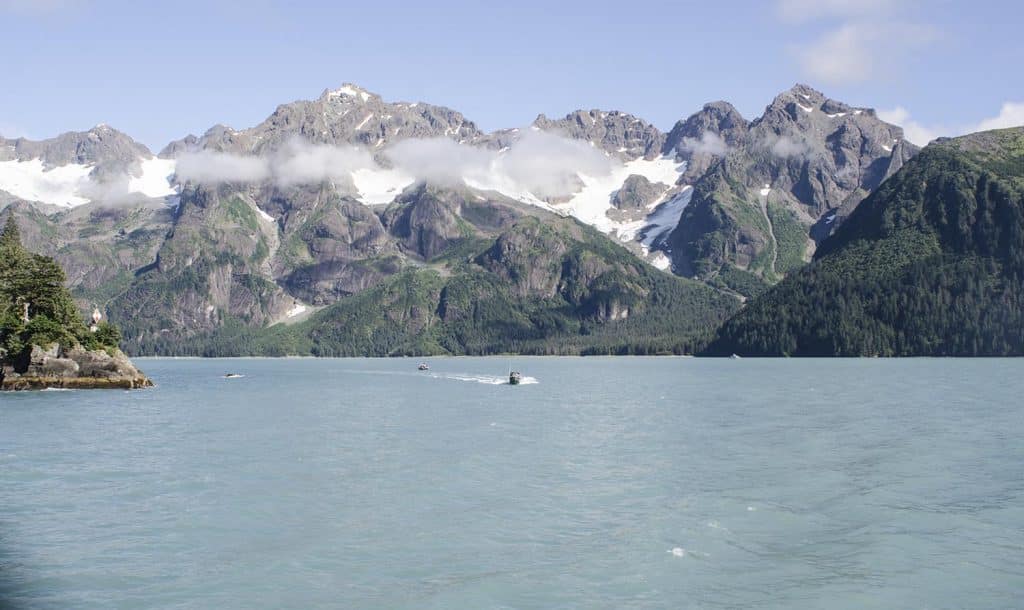
Photo Credit: Shelley Dennis
The first inhabitants of this region were the Alutiiq people, a somewhat nomadic tribe who hunted and traveled the Kenai Peninsula coast for more than 1,000 years. Archaeological evidence suggests that they ventured along the shoreline here, capturing fish and game, and eating off the land during summer months. An earthquake in 1170 AD lowered the coast by almost six feet, possibly inundating many campsites.
There were no settlements within the park until Alexander Baranov set up a fur trade post on Resurrection Bay in 1793. A small community grew around the bay, and by 1903 the southern terminus of the Alaska Railroad was built in what would become the town of Seward.
A few gold mining camps were established in the Nuka Bay area of the park in the 1920s, but it wasn’t until 1970 that locals put forth a suggestion to include the Kenai Fjords region in the national park system. In 1978, it was named a national monument to protect its unique natural resources and wildlife. Finally, in 1980 the monument became Kenai Fjords National Park.
Plan your next trip to the national parks in an RV. Rent an RV, trade-in your RV, or buy a new or used RV and start traveling for less than $5 a day.
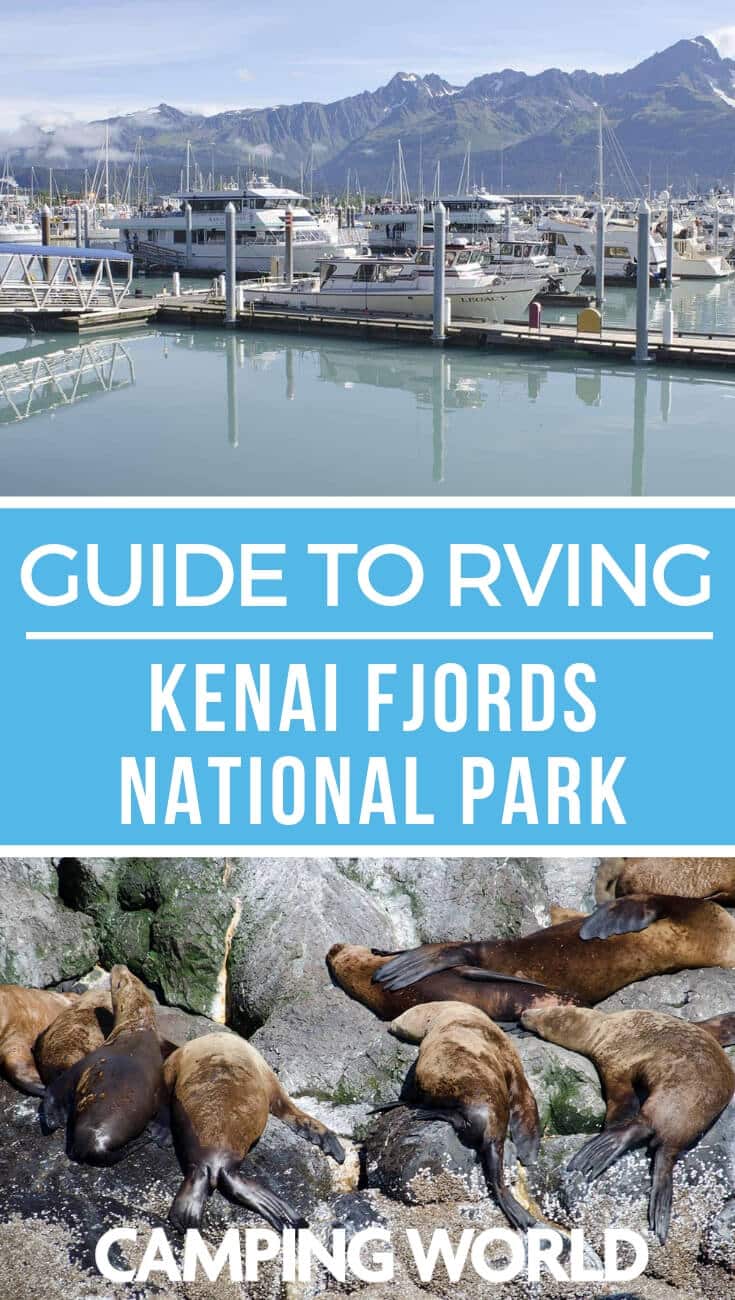
By: Shelley Dennis
Title: Camping World’s Guide to RVing Kenai Fjords National Park
Sourced From: blog.campingworld.com/the-rv-life/where-to-go/camping-worlds-guide-to-rving-kenai-fjords-national-park/
Published Date: Mon, 07 Nov 2022 21:00:49 +0000
---------------------------------------------
 CampingSurvivalistHuntingFishingExploringHikingPrivacy PolicyTerms And Conditions
CampingSurvivalistHuntingFishingExploringHikingPrivacy PolicyTerms And Conditions
